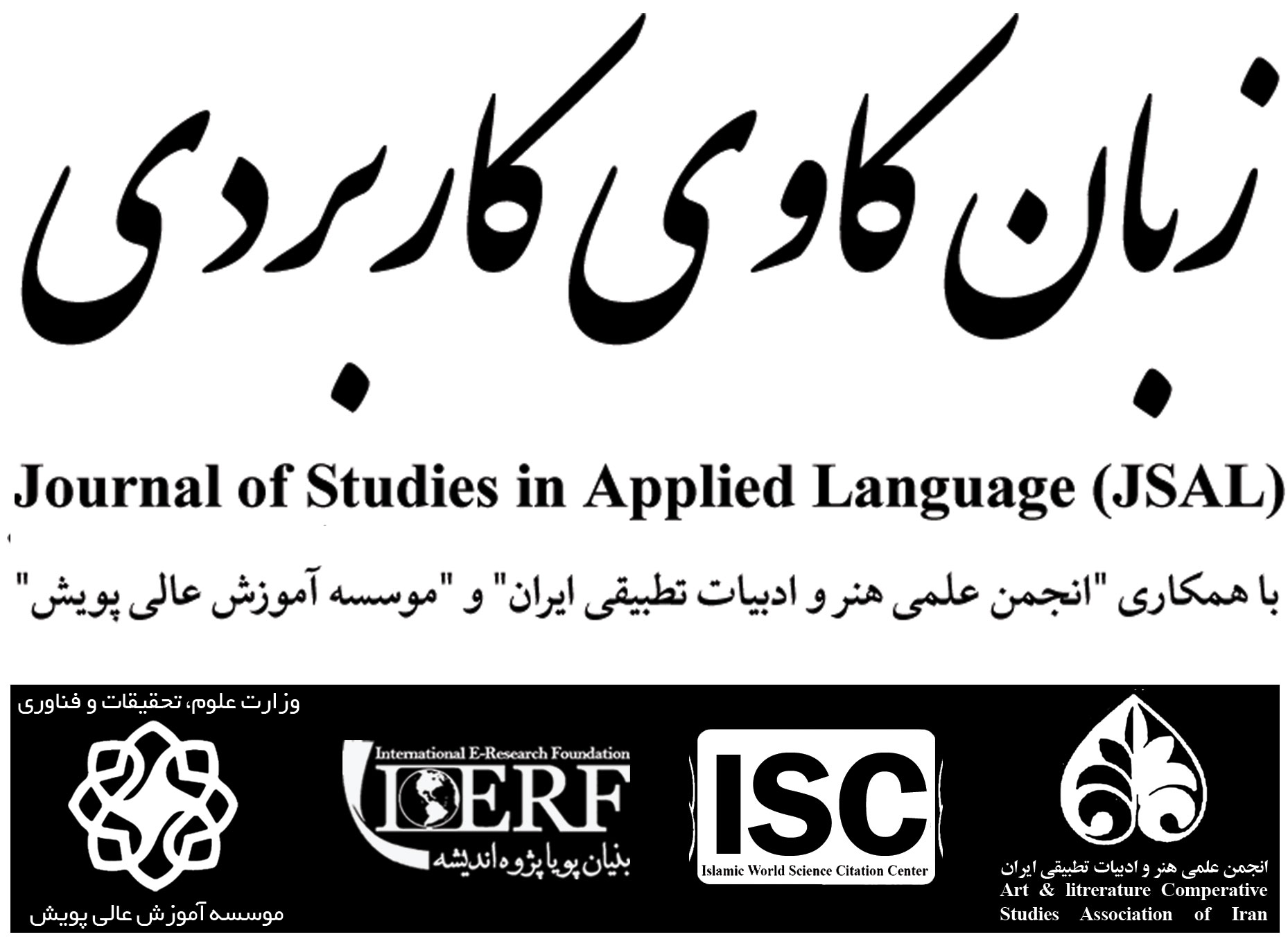<>
Volume 5, Issue 2 (Journal of Language Teaching, Literature & Linguistics (JLTLL) 2022)
JSAL 2022, 5(2): 1-22 |
Back to browse issues page
Download citation:
BibTeX | RIS | EndNote | Medlars | ProCite | Reference Manager | RefWorks
Send citation to:



BibTeX | RIS | EndNote | Medlars | ProCite | Reference Manager | RefWorks
Send citation to:
Abiri H. (2022). A study on the verbal treatment of finite and non-finite clauses in Persian active-passive sentences confronting with PRO according to cognitive linguistics [In English]. JSAL. 5(2), 1-22.
URL: http://jsal.ierf.ir/article-1-33-en.html
URL: http://jsal.ierf.ir/article-1-33-en.html
Ph.D student, Department of Foreign Languages, Islamic Azad University of Khomein, Markazi, Iran , hamidabiri22@yahoo.com
Abstract: (2833 Views)
PRO is considered as a substructure in linguistic studies that was first expressed by linguists in 1970s. Cognitive linguists also have conducted plenty of studies in this field. The current study aims at finding the Persian verbal treatment in active and passive voices of finite and non-finite clauses confronting PRO according to cognitive linguistics. To do so, at the beginning, each classification of Persian verbs is introduced and studied. The main hypothesis of this research is that all Persian verbs treat equally while facing PRO. Then, the verbs are compared and contrasted and the table of treatment is presented. At the end, all Persian verbs are compared and in the concluding table, the treatment of Persian verbs facing PRO is drawn. The results of this study indicate that Persian verbs have shown different treatment confronting PRO and they don’t act similarly. The most significant conclusions of this paper indicate that Persian verbs in finite active voices react positively to PRO which means that the existence of PRO is possible in this clause while in non-finite active voices, no PRO was found that means in under this condition, Persian verbs react negatively to PRO. And finally, Persian verbs have non-stable treatment in passive voices and treated differently. In finite passive voices of Persian verbs except one classification of verbs that treated negatively to PRO, the other groups took both positive and negative position which means in some cases, they permitted the existence of PRO and in some other cases, PRO wasn't observed in the clause. And finally, in non-finite passive voices of Persian verbs, except one group of verbs, the other classification of verbs took negative position against PRO which means PRO wasn't found in these types of clauses but one group of verbs, took neutral position against PRO.
Type of Study: Research |
Subject:
Sociolinguistics
Received: 2021/03/2 | Accepted: 2021/04/1 | Published: 2021/04/18
Received: 2021/03/2 | Accepted: 2021/04/1 | Published: 2021/04/18
Send email to the article author
| Rights and permissions | |
 |
This work is licensed under a Creative Commons Attribution-NonCommercial 4.0 International License. |






